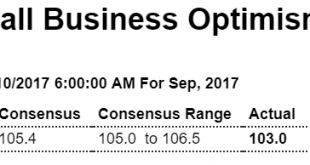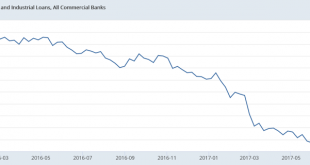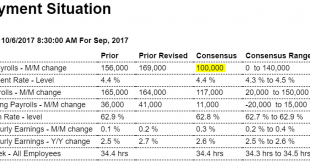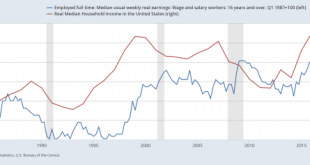from Maria Alejandra Madi The concept of nudge became popular after the publication of the 2008 book Nudge: Improving decisions about health, wealth, and happiness, written by Cass Sunstein and the most recent Nobel Laureate, Richard Thaler. According to the authors, nudge refers to “any aspect of the choice architecture that alters people’s behavior in a predictable way without forbidding any options or significantly changing their economic incentives. To count as a mere nudge, the...
Read More »CRISPR Critters
The first applications of gene editing are (will be?) to fix deleterious mutations. Nobody, or almost nobody, will complain when previously horrible diseases get fixed before a child is born. But the practice won’t stop there. There will be a progression of editing services from muscular dystrophy to hairlip to more ahtleticism, and eventually, more hair or a more attractive nose. The last two may take a while. But what will be really interesting will be...
Read More »Nobel Committee making a colossal fool of itself
from Lars Syll In its ‘scientific background’ description on the 2017 ‘Nobel prize’ in economics, The Royal Swedish Academy of Sciences writes (emphasis added): In order to build useful models, economists make simplifying assumptions. A common and fruitful simplification is to assume that agents are perfectly rational. This simplification has enabled economists to build powerful models to analyze a multitude of different economic issues and markets. What absolute nonsense! Writing this...
Read More »Richard Thaler gets the 2017 ‘Nobel prize’
from Lars Syll Today The Royal Swedish Academy of Sciences announced that it has decided to award The Sveriges Riksbank Prize in Economic Sciences in Memory of Alfred Nobel for 2017 to Richard Thaler. A good choice for once! To yours truly Thaler’s main contribution has been to show that one of the main building blocks of modern mainstream economics — expected utility theory — is fundamentally wrong. If a friend of yours offered you a gamble on the toss of a coin where you could lose...
Read More »Small business survey, Commercial construction index, Buybacks comments
Trumped up expectations continue to unwind, though still above pre election levels, and note the details: Highlights The small business optimism fell 2.3 points in September to 103.0, led by a sharp drop in sales expectations, not only in states affected by hurricanes in Texas and Florida, but across the country. The surprising drop put the index at the lowest level of the year after hovering just below the 12 year high set in January, and came in not only below the...
Read More »Open thread Oct. 10, 2017
Modern macro-economics and the sad truth about decoupling
Decoupling is the idea that when societies get richer, additional units of GDP will require less physical resources and will produce less carbon dioxide. This seems true when we look at national rich country production data. But it is not true when we look at rich country consumption data – as we outsourced energy and material intensive parts of producing our consumption goods to developing countries. We really have to blame our consumption pattern… Look here for an article of Mir and...
Read More »Credit check
Appears to be leveling off at much lower rates of growth than last year, as reflected by weaker than expected data releases and revisions:
Read More »Employment, Consumer credit, Social security comment, Corporate debt, Party affiliation
Year over year growth has been decelerating for all practical purposes in a straight line, as per the chart. And the downward revisions in prior months are further evidence of the weakness which began with the collapse in oil capex at the end of 2014. And wage growth increased at least partially because the jobs lost were largely those of lower income workers. Also, at this point with low levels of deficit spending, both public and private, the economy is more likely to be...
Read More »Inequality and immiseration (4 graphs)
from David Ruccio It’s clear that, for decades now, American workers have been falling further and further behind. And there’s simply no justification for this sorry state of affairs—nothing that can rationalize or excuse the growing gap between the majority of people who work for a living and the tiny group at the top. But that doesn’t stop mainstream economists from trying. Look, they say, American workers are clearly better off than they were before. Both real weekly earnings (the...
Read More » Heterodox
Heterodox






